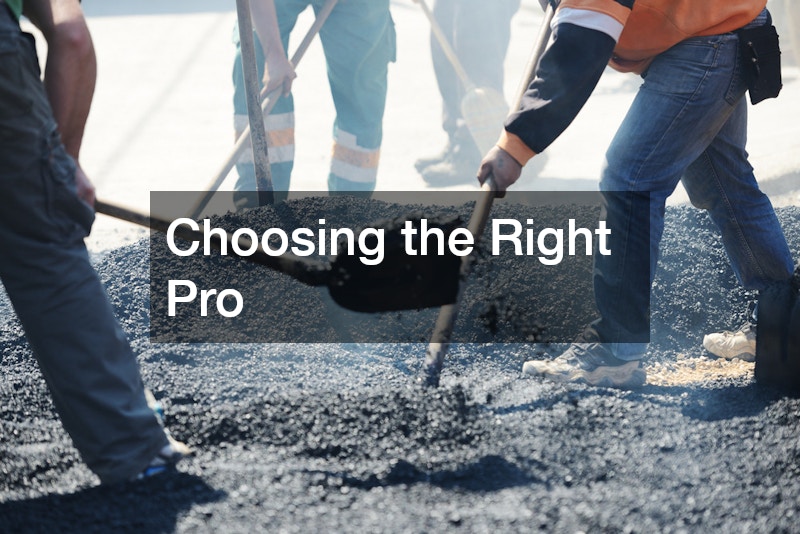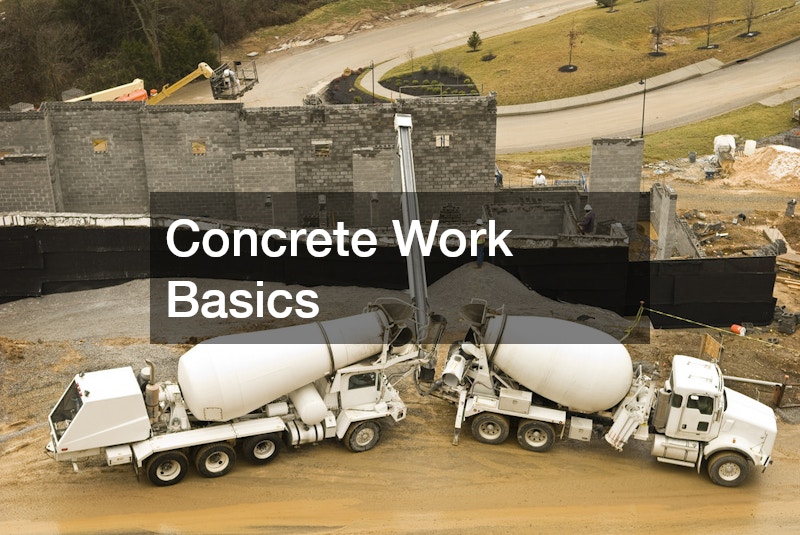Replacing or resurfacing your driveway is one of the most effective ways to upgrade your home’s curb appeal, increase property value, and ensure a safer, smoother surface for everyday use. Whether you’re dealing with cracks, potholes, drainage issues, or an outdated design, driveway replacements can provide long-term solutions tailored to your property’s needs. With so many options and techniques available today, homeowners can feel overwhelmed deciding where to begin.
This expert guide is designed to walk you through every stage of the process, from choosing qualified professionals to maintaining your investment after the work is done. We’ll break down the core materials available for driveways, compare their benefits, and help you understand which might be best suited for your climate, usage, and budget. Beyond just laying down new surfaces, there are key decisions to make around structure, durability, and aesthetics that can impact your home’s functionality and overall appeal.
Each section in this article is crafted to answer your most pressing questions while introducing important terms, techniques, and service providers involved in the process. We’ll cover how to evaluate the condition of your current driveway, plan for installation, and recognize when it’s time for repairs or upgrades. From initial planning to long-term maintenance, you’ll gain the knowledge you need to make informed choices that protect your investment. Whether you’re starting from scratch or looking to refresh your existing surface, this guide ensures you’re equipped with everything necessary to move forward confidently.
We’ll begin with how to identify and hire the right experts for the job, a critical first step in ensuring your driveway project is built to last.
1. Choosing the Right Pro

Hiring the right professional can make or break the success of your driveway project. A seasoned expert brings not only technical skill but also industry knowledge and foresight. They’ll help you navigate material options, local codes, drainage considerations, and design choices to ensure that the installation stands up to both weather and wear over time.
When seeking out paving contractors for your driveway replacements, look for companies with a strong track record, relevant certifications, and local experience. These professionals will be more familiar with regional climate conditions, permitting requirements, and ground preparation techniques. Ask for portfolios, customer reviews, and written estimates before committing to any agreement.
Ultimately, working with a trusted professional minimizes delays, ensures compliance, and gives you peace of mind throughout the process. Choosing wisely at this stage means fewer problems and better long-term performance, protecting your investment in your new driveway for years to come.
2. Material Types Compared
Understanding the pros and cons of various driveway materials is essential before committing to a replacement. Materials such as concrete, asphalt, gravel, and pavers each offer different benefits when it comes to durability, appearance, maintenance, and cost. The right choice will depend on your climate, usage, and aesthetic goals.
A skilled concrete contractor can guide you through the nuances of different finishes and curing times involved in concrete installations, helping you choose between basic gray slabs, stamped patterns, or decorative overlays. When planning a replacement of your driveway, concrete provides a sleek, long-lasting surface that works well for both residential and commercial settings.
By comparing materials early in the process, you can weigh not only the upfront installation costs but also the long-term value and upkeep. Your contractor’s insight will help you find the right balance between function and curb appeal that suits your property.
3. Planning Your Project

Proper planning is the backbone of a successful driveway project. From setting a budget to assessing your timeline and weather conditions, pre-project planning helps avoid setbacks and reduces unexpected expenses. It’s also a great opportunity to determine if a full replacement is necessary or if a resurfacing solution might suffice.
Consulting with experienced asphalt contractors can give you a realistic picture of the work involved. These experts will evaluate the subgrade condition, slope for water runoff, and traffic patterns to design a surface that will endure daily use. For many driveway replacements, they’ll also advise on the best time of year to carry out the work.
Thorough preparation helps ensure smooth execution. It allows time to secure permits, schedule labor and equipment, and arrange alternate parking. Taking these initial steps seriously can streamline the process and lead to a more professional final result.
4. Prep and Demo Steps
Before your new surface can be installed, the existing one often needs to be removed. This involves demolition of the current material, grading, and preparing a solid foundation to ensure longevity. Poor prep work is one of the leading causes of premature failure in driveway replacements.
For jobs that involve asphalt paving, this phase is especially critical. Removing old, broken asphalt or concrete requires specialized machinery and experienced crews. After removal, the base layer must be compacted to support the weight of vehicles and resist shifting or cracking over time.
Whether you’re dealing with an old gravel base or an uneven concrete slab, a proper foundation sets the tone for long-lasting results. Skipping these steps can lead to costly repairs down the line, making this phase one of the most important in your driveway overhaul.
5. Concrete Work Basics

Concrete remains a popular and reliable choice for homeowners due to its strength, clean appearance, and low maintenance. It’s highly customizable and works well for both functional and decorative applications. During driveway replacements, the quality of the concrete mix and curing process play a big role in the driveway’s performance.
When installing a new concrete driveway, professionals will ensure the surface is properly leveled, joints are correctly spaced to prevent cracking, and the slab has adequate thickness based on load requirements. These details are essential for creating a surface that lasts for decades without major issues.
Concrete also offers flexibility in finish. You can choose from broom-textured, exposed aggregate, or stamped patterns to match your home’s exterior. With the right care and installation, a concrete driveway can be both durable and stylish.
6. Understanding Asphalt
Asphalt is another top choice for homeowners due to its affordability, flexibility, and faster installation timeline. It’s particularly well-suited for colder climates, as its flexibility helps it withstand freeze-thaw cycles better than some other materials. For those considering driveway replacements, asphalt presents a practical, budget-conscious solution that still delivers long-term durability.
Though it might seem counterintuitive, concrete contractors often collaborate with asphalt professionals on larger-scale projects that involve mixed materials or structural enhancements. These joint efforts ensure transitions between surfaces are seamless and that all components meet proper load and drainage standards when replacing your driveway.
Asphalt requires periodic maintenance, but it’s also relatively easy to repair. With routine sealing and occasional resurfacing, an asphalt driveway can remain functional and attractive for up to 20 years or more. It’s a great choice for those prioritizing speed and efficiency without sacrificing quality.
7. Finishing Touch Options

The visual and functional impact of your driveway isn’t determined solely by the material you choose. You also need to consider how it’s finished. Curbing, texture, patterns, borders, and color tints all add a layer of customization that helps your new surface complement the home’s architecture and landscaping.
Professionals in concrete construction are highly skilled in implementing these finishing details. From stamped designs to acid staining and brushed finishes, they enhance the appearance of standard slabs while ensuring all aspects remain structurally sound. During driveway replacements, these added features can transform a plain installation into a major aesthetic upgrade.
Details like rounded edges, colored concrete, or contrasting borders might not be necessary, but they can boost curb appeal and increase property value. When done correctly, these enhancements make your driveway not just a path, but a feature worth showing off. These finishing choices also allow you to tailor the look of your driveway to match your home’s unique character and style.
8. Maintenance Must-Knows
Once your driveway has been replaced, maintenance becomes essential to preserve its appearance and functionality. The weather, traffic, and UV exposure all contribute to wear and tear over time. Regular care helps protect your investment and extend the life of your newly installed surface.
One of the most recommended practices, especially for asphalt surfaces, is driveway sealcoating. This process involves applying a protective layer over the surface to shield it from water, oil, sunlight, and oxidation. When done correctly, sealcoating can significantly slow the degradation of materials after driveway replacements.
Other basic maintenance includes prompt crack filling, keeping the surface clean, and avoiding heavy loads during extreme temperatures. A proactive approach will ensure that your new driveway continues to perform and look its best for many years.
9. Common Repair Signs
Even the most durable driveways show signs of wear eventually. Recognizing early indicators of damage can help you take timely action and avoid more expensive issues. Cracks, potholes, pooling water, and surface fading are all common signs that a repair or possibly a replacement is in order.
Consulting with a local asphalt company is a wise step when you begin noticing these symptoms. These professionals can assess the severity of the damage and help determine whether resurfacing will suffice or if a full replacement of your driveway is required. Their familiarity with local conditions also provides insight into underlying issues like drainage or base instability.
Catching problems early can make the difference between a minor repair and a major overhaul. A trusted local expert can help you take the best next step for your property’s condition and your budget. Addressing these issues can prevent safety hazards, such as trips and falls, especially for children or elderly residents.
10. Cost and Value Tips
Budgeting for a driveway project involves more than just the initial installation cost. Homeowners should consider long-term maintenance, potential repairs, and how well the material holds up over time. Upfront prices vary widely depending on size, materials, and complexity. Investing in quality work pays off in longevity and reduced upkeep.
Reputable driveway paving services will provide clear, itemized quotes that include prep work, materials, labor, and cleanup. They can also advise on options that balance affordability with resilience. During driveway replacements, transparency in pricing is key to avoiding surprises and managing expectations.
A well-executed driveway can also increase your home’s resale value and aesthetic appeal. When viewed as a long-term investment, the added property value and improved functionality often offset the initial expense, especially when done by reliable professionals. In many cases, a quality driveway is one of the first features that makes a lasting impression on potential buyers.
Paving Your Way To Success
Choosing to move forward with a driveway project is a decision that goes beyond surface appearance. Resurfacing or replacing your driveway is about improving function, safety, and property value. From identifying the right professionals to understanding your material options, every stage of the process has a role to play in achieving lasting results. As you’ve seen throughout this expert guide, driveway replacements require more than just tearing out and pouring new material. They involve thoughtful planning, quality workmanship, and strategic maintenance to protect your investment over time.
Each section of this article has provided a closer look at a key element of the process. Whether it’s hiring skilled help, choosing between asphalt or concrete, or applying the right finishing touches, the decisions you make now will shape the long-term performance and aesthetics of your driveway. For homeowners who are facing extensive wear and damage, replacing their driveway can restore not only curb appeal but also everyday convenience and peace of mind.
Investing in proper sealing, timely repairs, and professional evaluations can extend the life of your new surface, helping you avoid premature deterioration. Working with local companies that understand regional conditions and offer trusted driveway paving services can make all the difference in the quality and outcome of your project.
This guide was built to empower you with the knowledge to confidently plan, manage, and maintain your driveway project. Whether you’re looking to improve safety, enhance property value, or simply give your home a polished look, a well-done driveway is more than a finishing touch. It’s a foundational upgrade. With the right team, the right materials, and the right approach, your new driveway can offer lasting performance and impressive curb appeal for many years to come.

